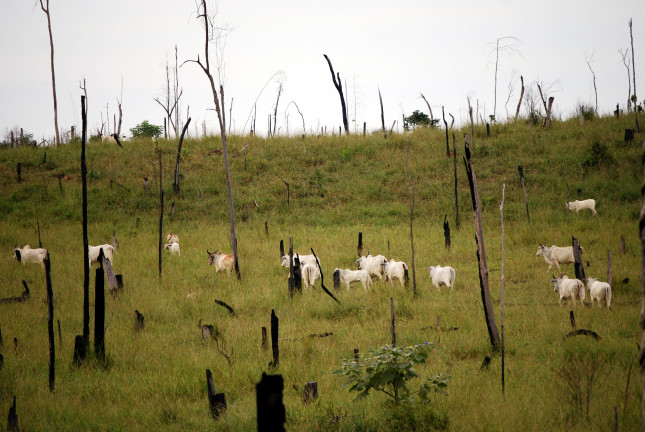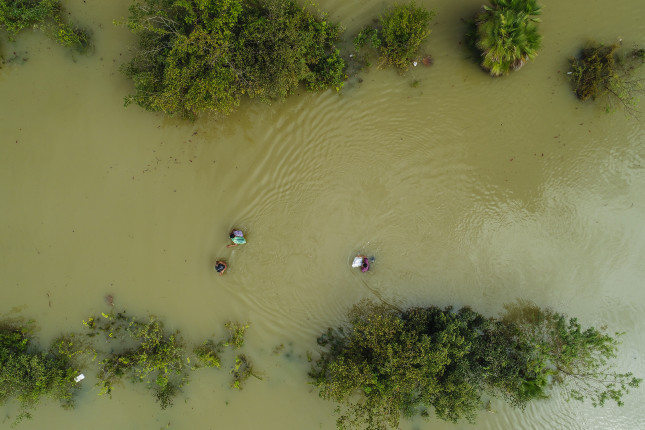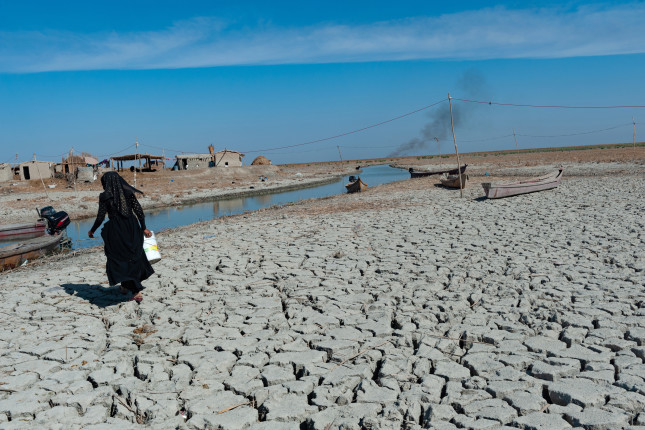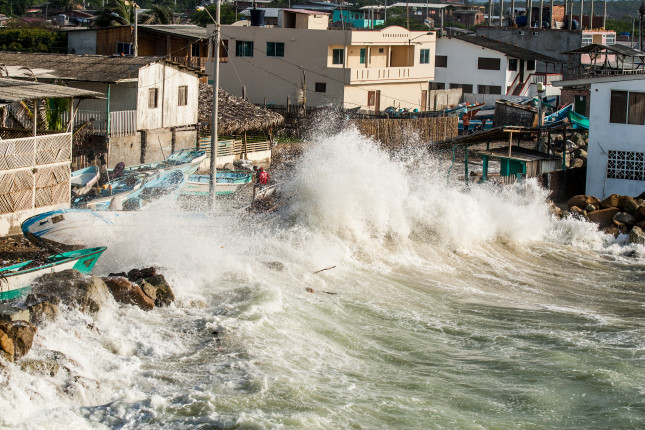-
Addressing the Converging Risks of Climate, Insecurity, and Migration in Central America
›May 19, 2023 // By Claire Doyle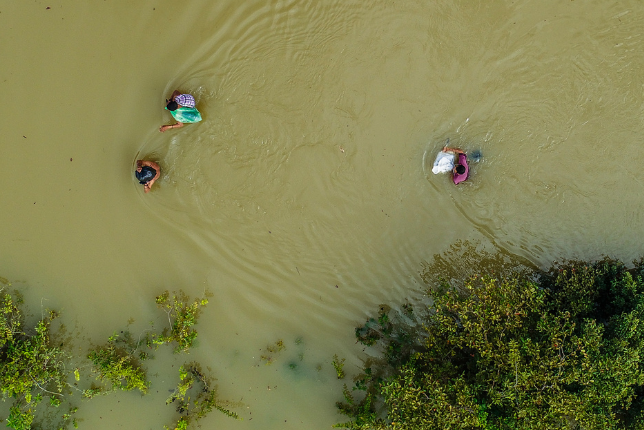
The idea of climate change as a “threat multiplier” has been gaining steam since it was first proposed roughly 15 years ago. This framing acknowledges that climate can interact with existing political, social, and demographic conditions to heighten communities’ security risks—which in turn suggests that problem-solving in the face of these risks must be interdisciplinary.
-
China’s Silent Greening
›China Environment Forum // Cool Agriculture // Guest Contributor // May 18, 2023 // By Rodrigo Bellezoni, Peng Ren & Zhao ZhongChina is Brazil’s main trading partner and accounts for over a quarter of all Brazilian exports. Yet two of the largest products in this trading relationship—beef and soybeans—are also crops that drive deforestation in the Amazon. Brazil’s deforestation rates declined substantially between 2004 and 2012, but forest clearage needed to raise cattle reversed the trend: The Amazon lost 10,476 square kilometers of rainforest in 2021, the highest total in the decade.
-
China’s Climate Security Vulnerabilities
›
Climate change’s ripples reach every corner of the globe, but nowhere is their geopolitical impact more pronounced than in China’s relations with the United States. This is especially the case as the undisputed security risks posed to both nations by climate change become intertwined with broader arcs of political, economic, and military competition on both sides.
-
Addressing Climate Security Risks in Central America (Report Launch)
›
Northern Central America is experiencing a confluence of insecurity and migration challenges that are increasingly intertwined with climate change. What are the contours of this emergent convergence—and how can responses be developed and implemented more effectively?
-
How is Climate Change Affecting MENA? Local Experts Weigh In
›From the Wilson Center // April 21, 2023 // By Khalil Abu Allan, Eslam A. Hassanein, Gokce Sencan & Neeshad ShafiFor Earth Day 2023, members of the Agents of Change Youth Fellowship answered this question: What is the biggest environmental or climate change related challenge facing your community today? Their responses reveal a pattern of vulnerability facing the MENA region.
-
Climate and Coastal Adaptation: The Need for Urgent Planning
›
The latest report from the UN’s Intergovernmental Panel on Climate Change highlights the small window of opportunity available to achieve climate resilient development, despite the growing risks of reaching tipping points. Environmental advocates argue that the UN’s warnings should remain front-and-center, including those that highlight worsening climate trends already experienced by developing nations.
-
New Security Broadcast | Ecoaction’s Kostiantyn Krynytskyi on Securing Ukraine’s Energy Future
› Since the start of Russia’s war in Ukraine, Kostiantyn Krynytskyi, Head of Energy at Ecoaction, and his colleagues, have been tracking the ongoing environmental damage caused by Russia’s aggression. In today’s episode of New Security Broadcast, ECSP Director Lauren Risi speaks with Krynytskyi to discuss how Ecoaction, the largest environmental NGO in Ukraine, is mapping out the environmental destruction caused by the war and working to develop a green post-war reconstruction of Ukraine. Krynytskyi shares how the war has impacted Ecoaction’s priorities and shifted its approach to address short-term energy needs in Ukraine while safeguarding a secure and sustainable energy future.
Since the start of Russia’s war in Ukraine, Kostiantyn Krynytskyi, Head of Energy at Ecoaction, and his colleagues, have been tracking the ongoing environmental damage caused by Russia’s aggression. In today’s episode of New Security Broadcast, ECSP Director Lauren Risi speaks with Krynytskyi to discuss how Ecoaction, the largest environmental NGO in Ukraine, is mapping out the environmental destruction caused by the war and working to develop a green post-war reconstruction of Ukraine. Krynytskyi shares how the war has impacted Ecoaction’s priorities and shifted its approach to address short-term energy needs in Ukraine while safeguarding a secure and sustainable energy future. -
What Will Change at the World Bank Mean for Climate Policy?
›
World Bank President David Malpass announced his resignation in mid-February 2023, and will step down by June 2023—about a year before finishing his five-year term. As several public officials indicated after the announcement, the climate legacy Malpass leaves behind is lacking. Indeed, the Bank itself has also been under scrutiny with recent calls for reform on climate finance.
The Biden Administration quickly announced Ajay Banga as their nominee in mid-February. If confirmed, Banga will step into this role in a high-profile moment, and his own stance on climate issues is already under close examination.
Showing posts from category environment.


